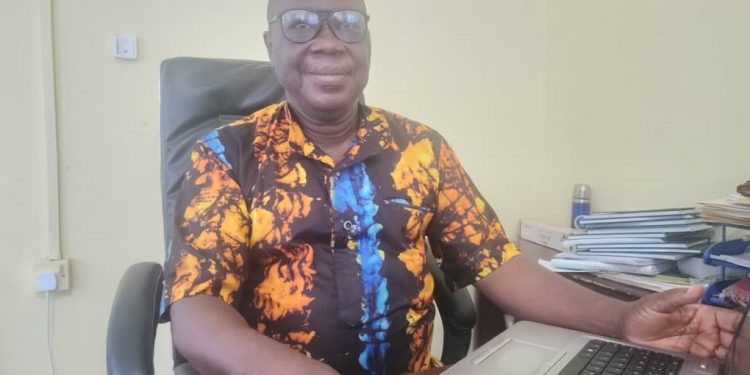University Secretariat, Njala Campus, 24th June 2025 – Dr. Peter Dennis Musa, Dean of the School of Natural Resources Management at Njala University, has reaffirmed the School’s resolve to equip professionals to manage Sierra Leone’s natural resources and respond to growing challenges in climate change and food insecurity.
In an exclusive interview, Dr. Musa emphasized that the School oversees five departments: Forestry and Wood Science, Wildlife Management and Conservation, Aquaculture and Fisheries Management, Horticulture, and Natural Resources Management. He noted that these departments are strategically positioned to address pressing national and global environmental concerns.
Dr. Musa explained that the School offers a full range of academic programs—from undergraduate to PhD levels—with focus areas such as environmental auditing, climate change, commercial forestry, and the blue economy. “Our programs are heavily field-based, providing students with real-world skills to address societal challenges,” he said.
He stressed that managing natural resources requires a multidisciplinary approach combining science, economics, and governance. “You can not manage an asset well without integrating key disciplines,” he noted, adding that tools like GIS and satellite imagery are embedded in the School’s curriculum to support sustainable resource governance.
Touching on Sierra Leone’s rich yet underutilized natural wealth, Dr. Musa warned that mismanagement has led to degradation and climate-related disasters. He emphasized the critical role of forestry in biodiversity conservation and climate change mitigation, stating, “Forests do much more than provide wood—they are central to regulating the environment.”
The Dean also called attention to the importance of horticulture, often misunderstood in the country. “Horticulture is not just about flowers. It covers fruits, vegetables, neglected crops, and landscape management—key for food security and sustainable urban planning,” he explained.
He further highlighted the School’s Fisheries program, noting its role in national food security. “We offer advanced degrees in fisheries production, processing, and marketing,” he said. With modern labs and ongoing collaboration with national and international partners, the department is poised to lead in aquaculture research in the region.
Concluding, Dr. Musa encouraged young people to enroll in the School’s highly relevant and marketable programs. “Our graduates are employed in ministries, NGOs, international organizations, and the private sector. We are open to collaboration with all stakeholders to ensure sustainable development,” he stated.
Credit: Public Relations Unit, Njala University










